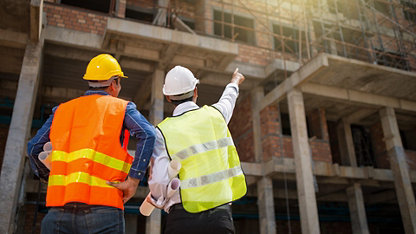On 12 April 2025, 08:00 BST, we will be disabling logins for specific member-facing platforms to improve internal processes. We expect this to finish 12 April 2025 at 17:00 BST.
As part of RICS’ commitment to sustainability, we are showcasing where firms are innovating to address the issues of climate change. The contents of this article to do not constitute an endorsement of their service, but are intended to be used as ideas for how surveyors can tackle issues such as climate change with the work they do. For other case studies please visit rics.org/sustainability.
GLM is based in Edinburgh and provides architecture, building surveying and project management services.
Demolitions are a significant contributor to carbon emissions. To support Scotland's drive toward net zero, GLM worked with Zero Waste Scotland to help measure the carbon and financial impact of business-as-usual demolitions and assess the benefits of a greener alternative.
Together with Zero waste Scotland, GLM conducted pre-demolition audits of a tower block, low-rise block, and community centre in North Lanarkshire. The purpose was to approach demolition in a more sustainable way by auditing the make-up of the current building and implications of standard demolition against the opportunity to reuse, recycle and regenerate materials or spaces.
The benefits and challenges of pre-demolition audits
As part of the process, a triple-bottom line comparison of cost, carbon and community impact between business-as-usual (BAU) demolition vs careful deconstruction that would preserve materials for re-use was conducted. It found multiple significant benefits, including:
- long-term financial savings
- lower emissions
- the retention of community value
This shows that careful deconstruction and re-use of elements could lead to millions of pounds being saved and thousands of kilograms of carbon emissions avoided.
However, immediate costs are higher than BAU demolition when the demolition is looked at in isolation, with these benefits only apparent when subsequent projects are included in the accounting.
For pre-demolition audits to have a significant impact on net zero efforts, a long-term, holistic approach to accounting and a move away from siloed thinking in construction projects is required.
Immediate costs are higher than BAU demolition when the demolition is looked at in isolation. With lower costs and improved environmental and social outcomes, these costs are only apparent when subsequent projects are included in the accounting. Pre-demolition audits allow for the process to be undertaken in a sustainably efficient way.
What next?
The project identified various hurdles to realising improved impacts, revealing a hit-list of areas to tackle in the wider industry. Areas to consider in more depth for greener demolitions and lowered carbon emissions include legislation, procurement, design, and public perception.
The requirement for pre-demolition audits, and the subsequent re-use of materials, can play a fundamental role in driving a circular approach to construction, preventing significant carbon emissions in future projects, and helping to deliver on the UK’s transition to net zero.
If you would like to know more about pre-demolition audits for a greener future or sustainability in the profession, please visit the















